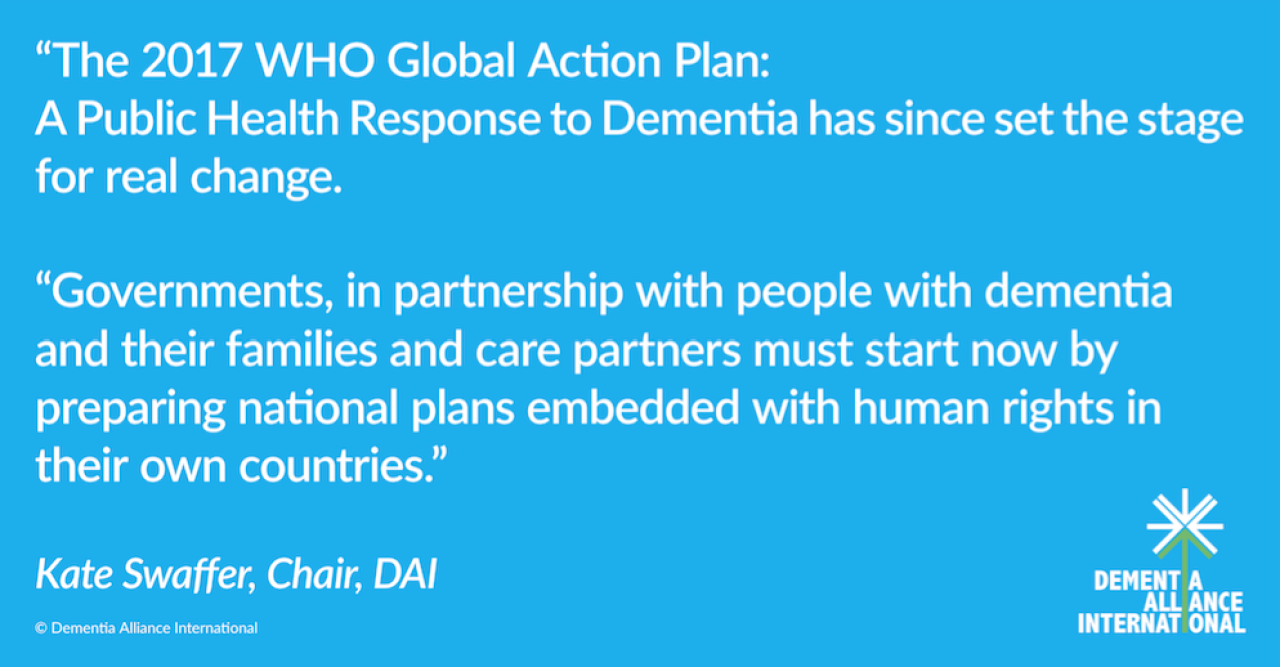
Human Rights

The current data, lack of knowledge about dementia, and poor attitudes towards people with dementia highlight the dire need for a human rights approach to people with dementia, and why it is critical dementia is managed as a chronic condition causing cognitive and other disabilities, to ensure access to the Convention on the Rights of Persons with Disabilities (CRPD).
On 6 January, the Institute for Health Metrics and Evaluation (IHME) published a new study on dementia prevalence forecasts in 204 countries in The Lancet: Public Health. This study estimates that 57 million people were living with dementia globally in 2019, a number expected to rise to 153 million by 2050. The authors acknowledged that this was similar to data published by ADI in the World Alzheimer Report 2019. The study also reinforces the disproportionate burden that dementia places on women, also highlighted in the ADI report on Women and Dementia (2015).
Dementia is a syndrome in which there is deterioration in cognitive function beyond what might be expected from the usual consequences of biological ageing.
Although dementia mainly affects older people, it is not an inevitable consequence of ageing.
Currently more than 55 million people live with dementia worldwide, and there are nearly 10 million new cases every year.
Dementia results from a variety of diseases and injuries that primarily or secondarily affect the brain. Alzheimer's disease is the most common form of dementia and may contribute to 60-70% of cases.
Dementia is currently the seventh leading cause of death among all diseases and one of the major causes of disability and dependency among older people globally.
Dementia has physical, psychological, social and economic impacts, not only for people living with dementia, but also for their care partners, families and society at large.
Dementia would be the 14th largest economy in the world if it was a country.
Already 60% of people with dementia live in low and middle income countries, but by 2050 this will rise to 71%.
Up to three quarters of those with dementia worldwide have not received a diagnosis.
Almost 80% of the general public are concerned about developing dementia at some point and 1 in 4 people think that there is nothing we can do to prevent dementia.
Almost 62% of healthcare practitioners worldwide incorrectly think that dementia is part of normal ageing.
35% of carers across the world said that they have hidden the diagnosis of dementia of a family member.
Let's do it together
These facts are why DAI works tirelessly to support as many people as possible living with dementia, but we cannot do it alone. We need the support of many other organisations, and the health care and service provider sector to be better educated about dementia, and to provide us with a pathway that is embedded with disability support and human rights. We do not want all the funding to go to resarch for a cure, but to be spent more broadly on impriving care and on reducing the risk of people getting dementia.
The WHO recognizes dementia as a public health priority. In May 2017, the World Health Assembly endorsed the Global action plan on the public health response to dementia 2017-2025. The plan provides a comprehensive blueprint for action – for policy-makers, international, regional and national partners, and the WHO.
You can also read an article “Human rights, disability and dementia”, written by DAI’s Chair, Kate Swaffer as a response to the Global Dementia Action Plan, published in the Australian Journal of Dementia Care.